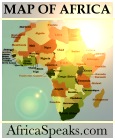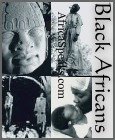Afrikan Involvement In Atlantic Slave Trade
Posted: Friday, November 8, 2002By Kwaku Person-Lynn, Ph.D.
Facing the truth about the past is not always a pleasant adventure. In fact, it is extremely painful dealing with why Black people are in the United States, after the 16th century. In no way is this an attempt to belittle the great and amazing history of Afrika, but simply to look at a portion of the past that does not merit a positive spot light, but is part of the Afrikan story nonetheless.
An authentic way to attack this problem is to look at a passage from Adu Boahen, a noted Afrikan historian, author and former chair of the History Department at the University of Ghana. He approaches this issue with a pure honesty: "How were all these numerous unfortunate Africans enslaved and purchased? African scholars and politicians today must be honest and admit that the enslavement and sale of Africans from the seventeenth century onwards was done by the Africans themselves, especially the coastal kings and their elders, and that very few Europeans actually ever marched inland and captured slaves themselves. Africans became enslaved mainly through four ways: first, criminals sold by the chiefs as punishment; secondly, free Africans obtained from raids by African and a few European gangs, thirdly, domestic slaves resold, and fourthly, prisoners of war," (Adu Boahen, Topics In West African History p. 110).
There is adequate evidence citing case after case of Afrikan control of segments of the trade. Several Afrikan nations such as the Ashanti of Ghana and the Yoruba of Nigeria had economies depended solely on the trade. Afrikan peoples such as the Imbangala of Angola and the Nyamwezi of Tanzania would serve as middlemen or roving bands warring with other Afrikan nations to capture Afrikans for Europeans.
Extenuating circumstances demanding exploration are the tremendous efforts European officials in Afrika used to install rulers agreeable to their interests. They would actively favor one Afrikan group against another to deliberately ignite chaos and continue their slaving activities.
I.A. Akinjogbin, noted Afrikan historian, in his article, 'The Expansion of Oyo And The Rise Of Dahomey 1600-1800," gives an example in the Aja Kingdom of Dahomey (now Benin): "The principal European traders took active part in installing kings who they judged would favor their activities, irrespective of whether such kings were acceptable to their subjects, or were the right candidates according to Aja traditions," (History of West Africa, J.F.A. Ajayi and Michael Crowder, eds., p. 389). This is the exact same system used today, whereby certain American Afrikans are put in positions to divide people of Afrikan descent through radio programs, editorials, books, chairs of academic departments, so-called fabricated leaders, executive directors of white supremacists organizations, and so forth.
A couple of additional points to be addressed are the Arab slave trade in Afrika, occuring almost 1000 years prior to the European slave trade, and continues even today, and continental Afrikan slavery, which was part of the culture, but more humane and unlike the chattel slavery of the United States. In Afrika, slaves were still human beings. In the United States, slaves were property. The cold reality, Afrikans controlled the capture of other Afrikans, initiated several wars and raiding parties to secure captives, set prices for buyers and even extended credit to Europeans for the purchase of Afrikans.
One prevailing and probably wishful sentiment on the part of many is that Afrikan rulers did not know what type of slavery they were selling Afrikans into. A view dispelled by the fact many rulers knowingly went to war with their neighbors, killing millions and destroying entire communities in order to capture fellow Afrikans for sale. Maintaining power, expanding the economy, greed and expansionist ambitions were the prime motivating factors.
There is no way anyone can defend or justify Afrikan involvement in the slave trade, other than acknowledge that it is one of many historical facts that must be faced.
It is mandatory to look at the mistakes of the past so as not to duplicate them again. There are several people of Afrikan descent psychologically and culturally involved in the negative, anti-Black philosophy of western culture. They would turn against other Blacks at the drop of a dime, especially if they felt it would curry favor with their European companions, and often add to their pockets. It is essential to examine the slave trade, in order to understand the same behavior operative today.
Though this effort concentrated on the Afrikan involvement in the slave trade, by no means does it dismiss the European role in the most traumatic, brutal, oppressive event in human history. Europeans, through the church in Rome, and lessons learned from Arabs, launched the Atlantic slave trade, financing the European and American industrial revolution. Thus, the birth of an economic system we practice today, capitalism. Europeans developed it from a pirating operation into a business, partly the European Jewish contribution to the trade, and supplied favored groups with arms and ammunition, contributing to the deaths of millions. Without the Europeans, there would have never been an Atlantic slave trade.
Kwaku Person-Lynn is the author of On My Journey Now - The Narrative And Works Of Dr. John Henrik Clarke, The Knowledge Revolutionary.
Reproduced by consent of Dr. Kwaku Person-Lynn
Share your views herePrinter friendly version
Send page by E-Mail

Previous Page | Zimbabwe Watch | Historical Views | Home
NOTICE: All articles are the copyright property of the writers. In accordance with Title 17 U.S.C., section 107, some material on this site is provided without permission from the copyright owner, only for purposes of criticism, comment, scholarship and research under the "fair use" provisions of federal copyright laws. Visit: http://www.law.cornell.edu/uscode/17/107.shtml for more details. If you wish to use copyrighted material from this site for purposes of your own that go beyond 'fair use', you must obtain permission from the copyright owner.










